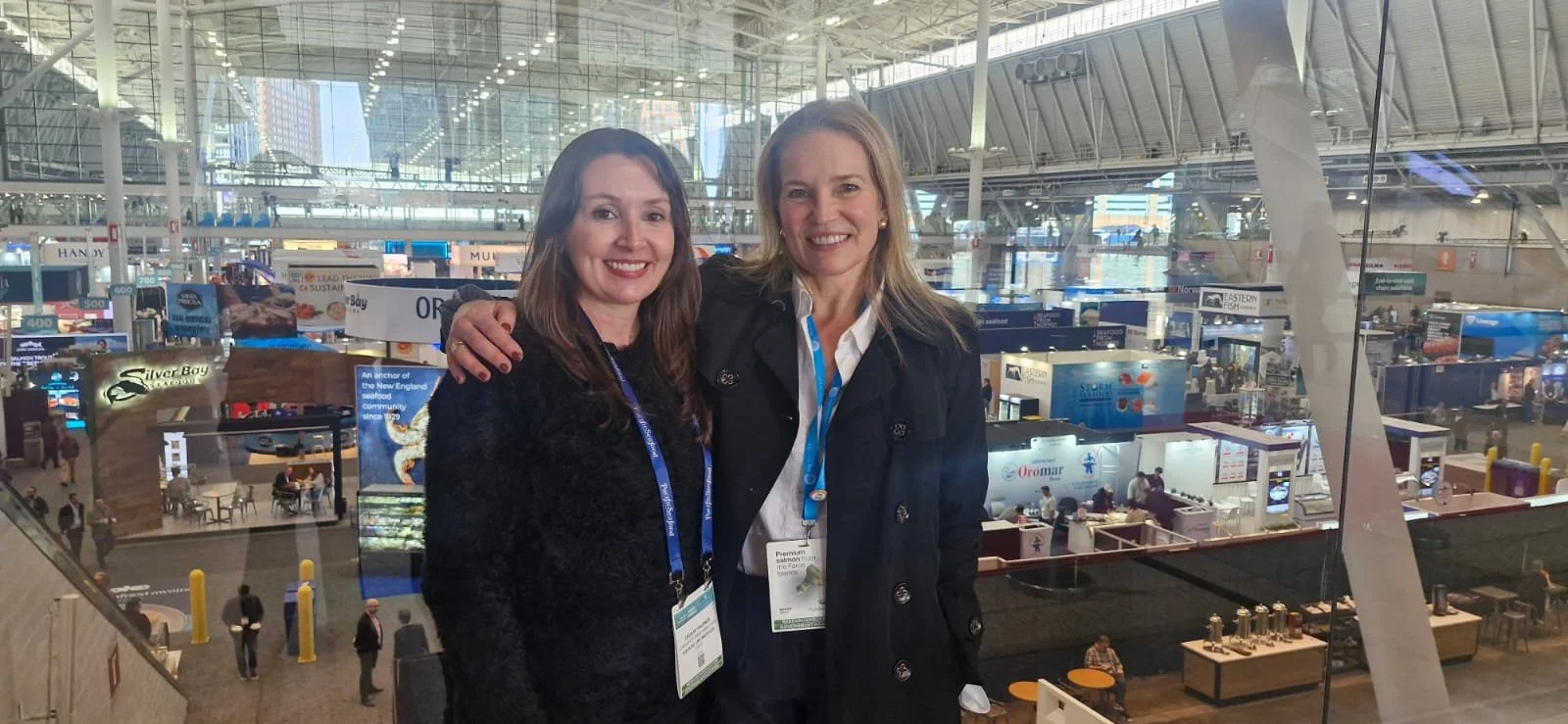Animal Welfare is No Longer a Niche Concern: Insights from Seafood Expo North America 2025
At Seafood Expo North America in March 2025, Aquatic Life Institute team members engaged in discussions and made connections with stakeholders aligned with our vision for a more humane and sustainable seafood industry.
Sophika Kostyniuk, ALI’s Managing Director, and Cecilia Valenza, ALI’s Corporate Engagement Lead, recently attended the 43rd edition of Seafood Expo North America (SENA 2025) in Boston and gathered a few key insights about the future of responsible seafood sourcing.
One thing became abundantly clear: animal welfare is no longer a niche concern—it is a fundamental component of ethical and sustainable seafood production. Welfare was a recurring and urgent topic in our team’s discussions with industry leaders, retailers, certifiers, and industry groups. The industry is shifting fast, and companies that do not act on this issue will face increasing scrutiny, market pressure, and regulatory risks.
The Seafood Industry is Moving – But Is It Moving Fast Enough?
The SENA keynote address by Nomi Prins highlighted economic challenges, inflation, and the ongoing tariff war, but one message stood out: seafood is set to be the most consistently growing protein sector. At the same time, industry scrutiny is intensifying. The shrimp supply chain came under the spotlight for severe labor rights violations, with urgent calls for reform. This reflects a broader trend: ethical concerns—whether related to labor or animal welfare—are becoming business risks.
Retailers are already responding. All major UK retailers have now introduced crustacean welfare policies, setting a new industry standard. As with labor rights, companies that fail to address welfare concerns will find themselves falling behind.
Animal Welfare Strengthens Sustainability – It’s Time to Act
Throughout SENA, it was clear that responsible sourcing is now recognized as a key risk mitigation strategy. The launch of the Science-Based Targets for Seafood (SBTN) framework was a significant highlight. This initiative—co-led by WWF and Conservation International—provides a critical roadmap for protecting biodiversity and ecosystems in seafood production.
At ALI, we strongly support this step forward and see an opportunity to strengthen it further by integrating aquatic animal welfare as a key pillar. Better welfare practices help reduce overexploitation, improve resource efficiency, and enhance responsible sourcing—all core objectives of the SBTN framework. We look forward to working alongside SBTN and industry stakeholders to ensure that welfare is fully recognized as part of a sustainable seafood future.
Why Companies Can’t Afford to Ignore Animal Welfare
Neglecting aquatic animal welfare is a material risk—not just an ethical concern. Companies that fail to act may face serious financial, operational, and reputational consequences. Conversely, those that integrate welfare standards can:
De-risk supply chains – Stronger welfare practices reduce disease outbreaks, improve product quality, and create more stable and predictable operations.
Strengthen sustainability commitments – Better welfare practices contribute to lower emissions, improved resource efficiency, and more responsible fishing and farming practices.
Stay ahead of evolving market expectations – Leading retailers have already committed to improving welfare, and suppliers that fail to adapt will lose ground to competitors who do.
ALI Can Support Companies Lead on This Issue
Aquatic Life Institute (ALI) offers free, tailored consultancy to help companies of all sizes and levels of experience integrate animal welfare into their sustainability, ESG, and responsible sourcing commitments. Whether your company is just beginning to explore this issue or already taking steps toward stronger welfare policies, we see it as a journey and are committed to providing guidance, resources, and support every step of the way.


